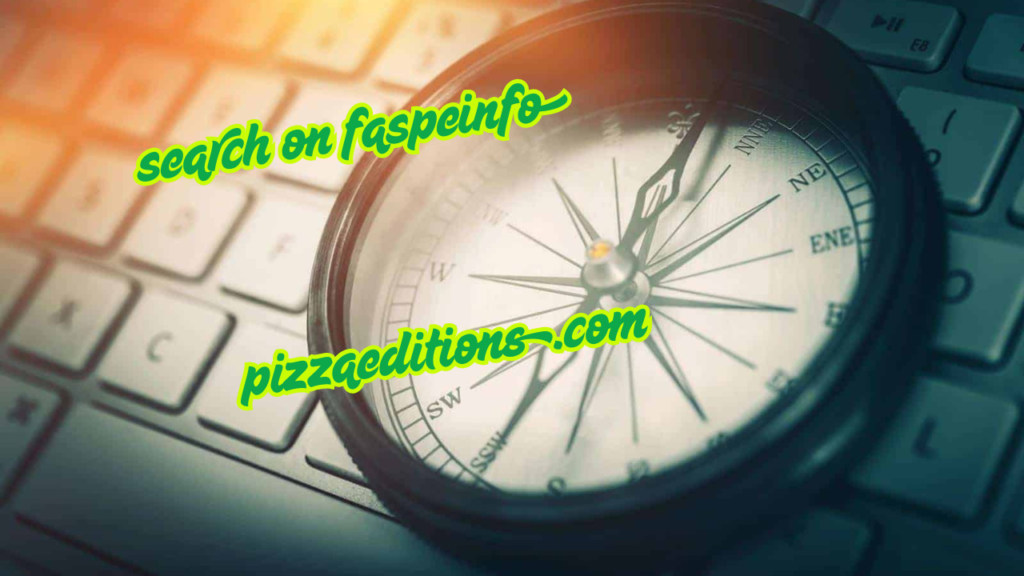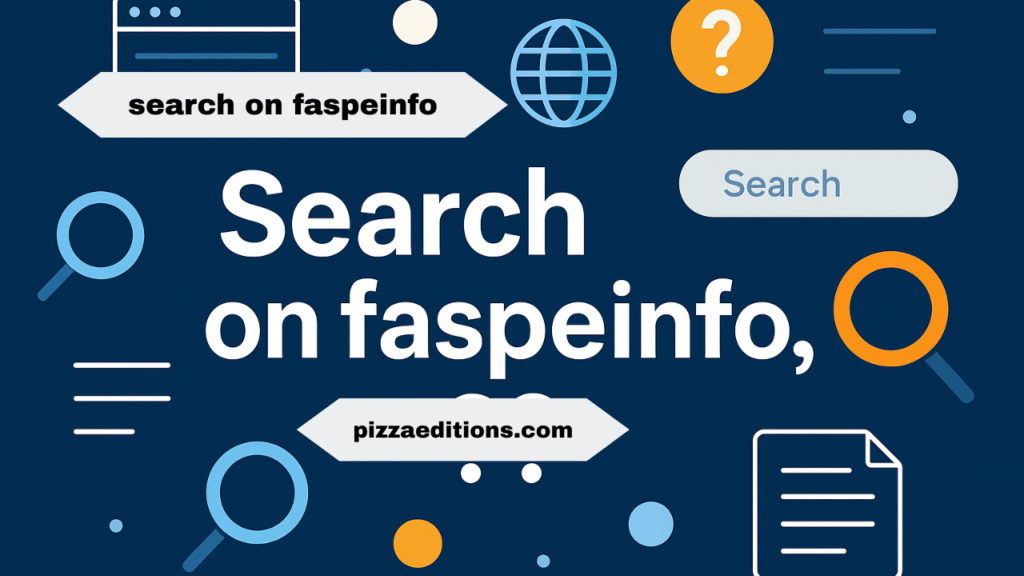Introduction: The Modern Necessity of Smart Search
Effective search skills are becoming just as important in today’s information-driven environment as reading and writing. Given the abundance of websites, platforms, and knowledge bases available to us, being able to properly search on Faspeinfo and understand the results might be the difference between success and confusion. But what if there are tools or platforms that call for a little more dexterity, like the mysterious and much-discussed “search on faspeinfo,??” Let’s explore what this implies, why it’s important, and how to master it.
What Is Faspeinfo? Understanding the Platform

Before diving into how to search on faspeinfo, it’s important to understand what faspeinfo actually is. While its precise nature may not be widely known, faspeinfo represents the new breed of intelligent, data-focused digital platforms. It is often seen as a hub for specialized information, whether academic, technical, or user-generated. The term “search on faspeinfo” could relate to tapping into structured or semi-structured data in a way that yields meaningful insights.
But what about the “??” that often accompanies the phrase? This could signify an undefined variable, a user’s confusion, or even a placeholder for deeper search queries—something that often comes into play when navigating complex or multilayered systems like faspeinfo.
Why Search Matters: The Heart of Digital Navigation

Searching effectively is the digital equivalent of map-reading in the wilderness. On platforms like faspeinfo, the search function is not just a bar at the top of a screen—it’s the gateway to insights. The keyword “search on faspeinfo” is more than a phrase; it’s a practice that can evolve as users understand the platform’s structure.
Many platforms, including faspeinfo, operate with metadata, user tags, smart categorization, and dynamic indexing. This means that to search on faspeinfo effectively, users must learn how to use search terms, filters, and symbols (like the possible meaning behind “??”) in more strategic ways.
Cracking the Code: What Does “Search on Faspeinfo, ??” Really Mean?

The phrase “search on faspeinfo, ??“ has become symbolic of the digital user’s journey from curiosity to clarity. The double question marks (??) could mean:
- A placeholder: indicating that the user isn’t sure what to search.
- A wildcard: suggesting the need for broad or fuzzy searches.
- A problem marker: pointing to a difficulty in finding clear results.
Understanding how to interpret and resolve the “??” in your search behavior can dramatically improve your effectiveness. Whether it means you need to refine your keywords, better understand faspeinfo’s algorithm, or look for help within the community, dealing with “search on faspeinfo, ??” is part of the growth process in digital fluency.
Advanced Search Techniques on Faspeinfo
So, how do you actually improve your ability to search on faspeinfo?
1. Use Specific Keywords
Avoid vague terms. Instead of searching “books,” try “digital archives of 20th-century literature on faspeinfo.” The more specific your keyword, the better your chances of finding relevant content.
2. Understand Boolean Logic
Many advanced platforms allow for Boolean operators:
- AND narrows the search (e.g., history AND science).
- OR broadens it (e.g., biology OR chemistry).
- NOT excludes terms (e.g., science NOT physics).
These help structure your search on faspeinfo more intelligently.
3. Explore the Use of “??” Strategically
If “??” works as a wildcard on faspeinfo, it could be used to replace unknown words or variables in a query. For example, “quantum ?? theory” might bring up “quantum field theory,” “quantum string theory,” and more.
4. Use Filters and Tags
Many search platforms let you filter by date, type, category, and author. Learning how to use these tools helps refine your search on faspeinfo dramatically.
Common Challenges in Searching on Faspeinfo
Even experienced users encounter issues with platforms like faspeinfo. The most common ones include:
- Overly broad results: caused by generic terms or lack of filters.
- No results found: either because of misspellings or incompatible search logic.
- Information overload: not knowing how to prioritize the top results.
- Uncertainty (??): not knowing what to search for in the first place.
Understanding and overcoming these challenges is what elevates casual users into savvy digital explorers.
The Future of Search: AI, Natural Language, and Beyond
Looking ahead, platforms like faspeinfo are likely to integrate even more powerful tools such as:
- AI-driven suggestions: which understand your search intent.
- Natural Language Processing (NLP): allowing users to type queries in everyday language.
- Voice Search: which can make the “??” less confusing by offering real-time clarifications.
The phrase “search on faspeinfo, ??” could evolve into a symbolic representation of learning to communicate with increasingly intelligent digital systems.
From Confusion to Clarity: Embracing the Learning Curve
If you’ve ever typed “search on faspeinfo, ??” into a bar and felt lost, you’re not alone. But the confusion is temporary. By understanding how to approach searches with logic, precision, and adaptability, you can turn those double question marks into lightbulb moments.
Like learning a language or solving a puzzle, mastering the art of searching on faspeinfo requires practice, patience, and a willingness to ask questions—even if they start with “??”.
Final Thoughts: Your Journey Into the Depths of Faspeinfo
The internet is vast, and platforms like faspeinfo can feel like digital labyrinths. But with the right mindset and search strategies, you don’t have to be lost. Embrace the mystery of the “??”, refine your keywords, and commit to learning the architecture of platforms like faspeinfo.
So next time you face a blinking cursor and wonder how to “search on faspeinfo, ??”—remember: every great discovery starts with a question.
Also Read : H5 Firekirin: An In-Depth Guide to the Revolutionary Gaming Experience
